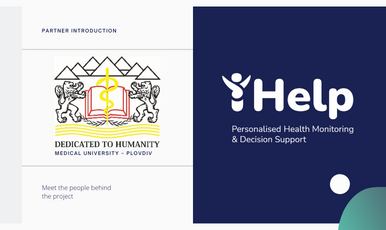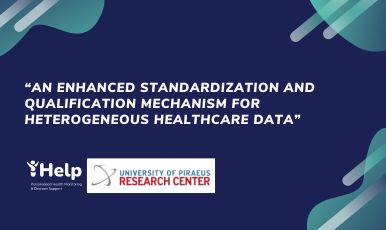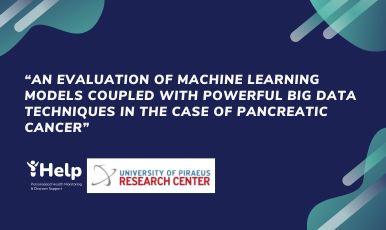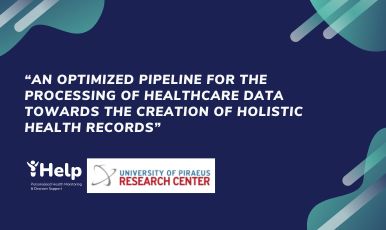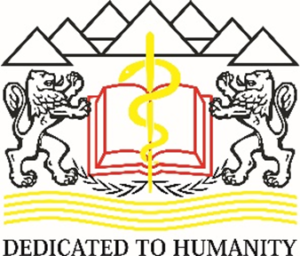
Medical University – Plovdiv, Bulgaria, is a public institution of higher education accredited by the National Evaluation and Accreditation Agency. It provides training for students in Medicine, Dental Medicine, Pharmacy, and Public Health as well as postgraduate training for Ph.D. students and specializing medical professionals in Medical College – part of the University. We have 513 undergraduate and 5,582 postgraduate students from 34 countries around the world. MUP consists of four faculties (Faculty of Medicine, Faculty of Dental Medicine, Pharmacology Faculty, Public Health Faculty), one Medical College and 5 University Multiprofile Hospitals for Active Treatment, and one University Hospital for Specialized Active Treatment.
The academic staff of MUP consists of 842 professors, associate professors, assistant professors, and lecturers. It covers European standards for medical training and quality in accordance with the requirements of standard ISO 9001:2008.
Medical University – Plovdiv is a member of the European Association of Medical Schools. It holds the Erasmus University Charter thus ensuring participation in international educational projects and programs of the European Union.
Research activities at Medical University-Plovdiv are synchronized with priority research areas of national and international importance including biomedical, clinical, and healthcare projects. A number of successful projects have been implemented. Two of them are exclusively focused on early diagnosis and treatment of the malignancies – “PERIMED” – Established Centre for Personalized Medicine with a focus on oncology, intensive medicine, innovative drug carriers for target therapy, bioengineering technologies, and biosensors, and “HOPE” – HOW ONCOGENETICS PREDICTS & EDUCATES.
University multi-profile hospital for active treatment “Saint George” is the largest hospital in Bulgaria and it is a referent hospital for patients from entire Southern Bulgaria (with an average population above 2.5 million). It is located on two bases with a huge building fund of about 150,000 square meters of built-up area. It has over 1,500 beds and 2,694 staff, of which 653 are medical doctors and 925 are health care specialists. In recent years, the average annual number of patients who are hospitalized for active treatment exceeds 80,000. The hospital structure includes 65 clinics, wards, and laboratories. A medical oncology department is dedicated only to the treatment and monitoring of patients with malignant neoplastic processes. Several other departments – hematology, pediatrics, special surgery, and internal medicine have clinics and wards for the oncology treatment of their patients. The hospital poses unique treatment capabilities within the specialized clinic for radiotherapy – three multi-linear accelerators from the latest generations and the robotic system for stereotactic radiosurgery (cyberknife). The oncology diagnostic capacities are assured by the following structures: Ward for Nuclear Medicine as an independent diagnostic structure with a new sector for positron emission tomography and the dedicated to the oncology “High-tech center for image diagnostics of oncological diseases”. The Department for special surgery treats patients suspected of or diagnosed with pancreatic cancer. All the oncology departments and wards pose the required state-of-the-art laboratories for specific diagnostic tests.
A dedicated department for oncology diagnosis and treatment is established also in the University Multiprofile Hospital for Active Treatment “Pulmed” and within University Specialized Hospital for Obstetrics and Gynaecology “Selena”.
University Multiprofile Hospital for Active Treatment “Kaspela” is specialized in the surgical treatment of different malignancies.
The University campus is located in the same area as the Complex Oncology Centre which is the diagnostic-treatment facility for Southern Bulgaria.
Malignant processes diagnosis and treatment are also provided by the University Departments of Pediatrics and Medical Genetics, Internal Medicine, Dermatology, and Venerology. Within these departments are established dedicated sections for the treatment of patients with malignant processes.
After the acute treatment, every discharged patient is closely monitored for at least 5 years for symptoms that could predict the relapse of the disease. The University facilities are equipped with state-of-the-art medical equipment for testing, diagnosing, and treating children and adults with cancers.
The MUP Faculty of Public Health is educational and research center for all related to public health issues and medical information processing and distribution (medical data related to the health hazards and risk factors identification and collection, validation, analyses, processing, dissemination, and implementation). The Faculty is already involved in international projects related to the implementation of information communication technologies in the early prediction and monitoring of patients at risk of cancer development. Also, the MUP Faculty of Public Health is the leading scientific organization in Southern Bulgaria for developing health promotion and health prevention programs that address the medical community and population as a whole.
Main tasks in the iHelp project:
- Retrospective data collection – the data (900 and above patients) is provided by the oncology departments and wards, as well as by the Complex Oncology Centre
- Data evaluation and assessment – performed by the Faculty of Public Health
- Participation in the building up training and health prevention and health promotion programs – task performed by the Faculty for Public Health
- Input to the risk-predictor development – the selection of the data that were collected and analyzed into the retrospective study was made after thoroughly focused discussions with the clinicians from the above-mentioned departments of the MUP Multiprofile Hospitals for Active Treatment and the Complex Oncology Centre. These data sets will undergo meta-analysis in order to become the basis for risk-predictor development by the IT partners in the project.
- Implementation of the IT product into the medical pilot – Based on the recommendations given by the clinicians from the oncology departments, a focused questionnaire regarding the awareness and knowledge of the medical specialist on Information Communication Technologies implementation into early diagnosis of Pancreatic cancer was developed for survey within medical and patients at risk community.
- Assessment of the results of the IT product implementation – the Faculty for Public Health will evaluate the changes within medical specialists and patients at risk awareness after the implementation of the iHELP platform into clinical practice.
- Dissemination of the results among the medical community and health policy makers – task to be performed by the Faculty for Public Health mainly within the above-mentioned hospitals’ structures and general practitioners’ practices.
The main team members of the MUP and their contribution to the iHelp project:

Prof. Rostislav Kostadinov (MD, PhD, DSc) at the Public Health Faculty of Medical University Plovdiv, will guide the MUP team to the Questionnaire assessment for the medical professional awareness development and the survey participants’ inclusion and exclusion criteria, as well as the results processing and analysis.
Prevention is the best treatment. Early identification of the hazards and risk factors are the required basis for prevention. Combining the human intellect and Artificial Intelligence within the iHELP project is a powerful asset for the assuring the success into prevention, early diagnosis and effective treatment of the pancreatic cancer.

Prof. Dilyana Viceva (MD, PhD) at MUP Vice-Rector for International relations and Project Activities, has immense experience in project development and management, vast communication net, and clinical insight into the diagnosis and treatment of malignant processes that are of great value for the communication and dissemination of the project and achieved results. The excellent communication skills of Dr. Vicheva will facilitate the medical specialist’s inclusion in the pilot 4 awareness survey. Her input in the survey results assessment will be significant for the iHelp platform validation process.

Lubomir Paunov, as a general surgeon, has gained clinical experience in the diagnosis and surgical treatment of malignant processes mainly Pulmonary Carcinoma and Pancreatic Cancer, as well as of pre-cancer diseases such as Acute Pancreatitis, Chronic and Acute Cholecystitis and Digestive System Malignancies. His particular interest is in the immune response changes reported by patients prior to and after surgical treatment for oncology diseases. His clinical expertise will be a valuable input in medical data collection and assessment as well as for risk-predictor development.

